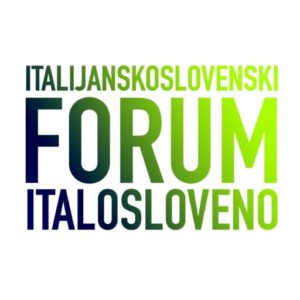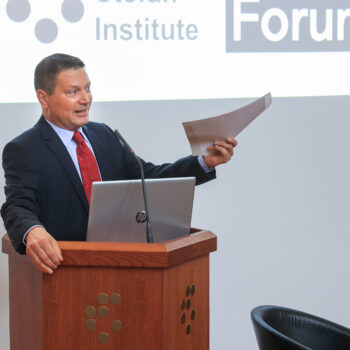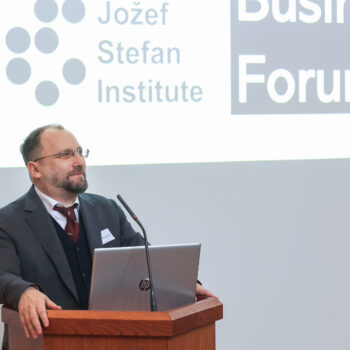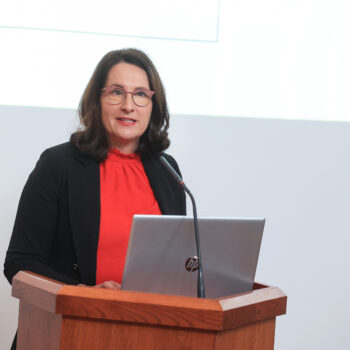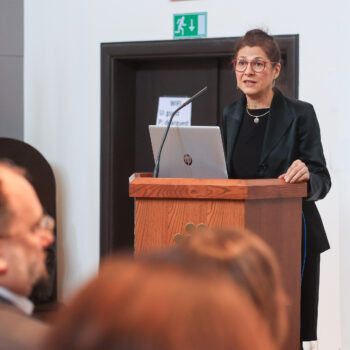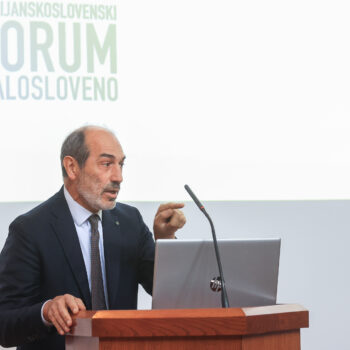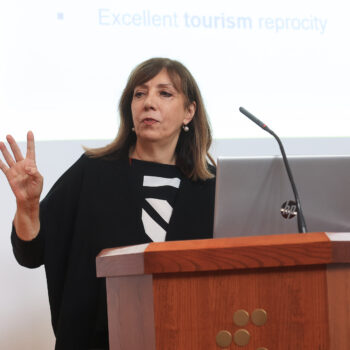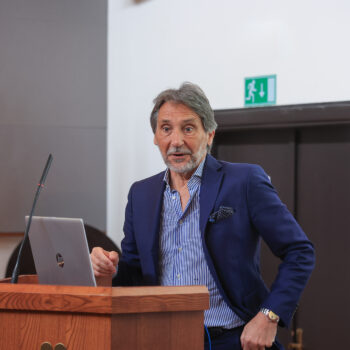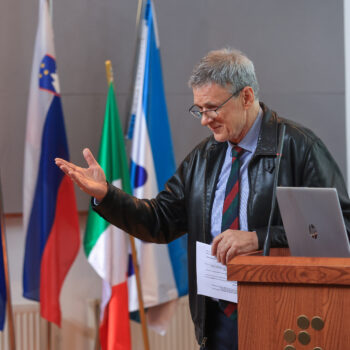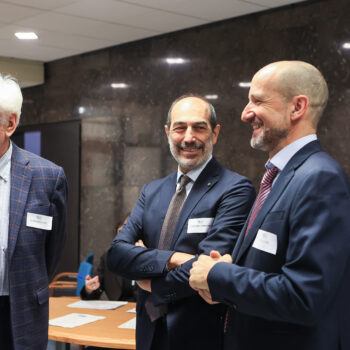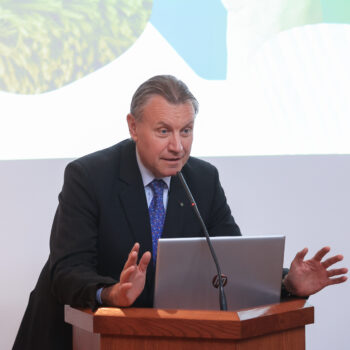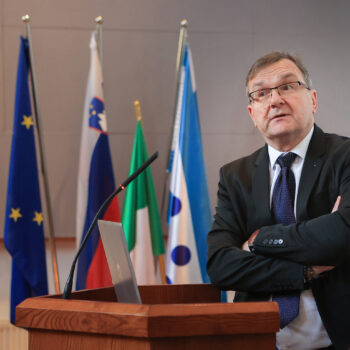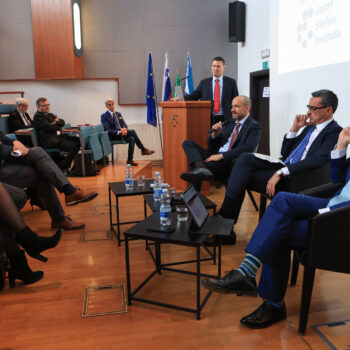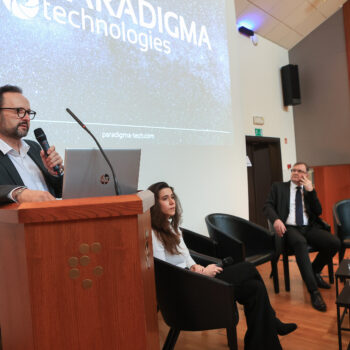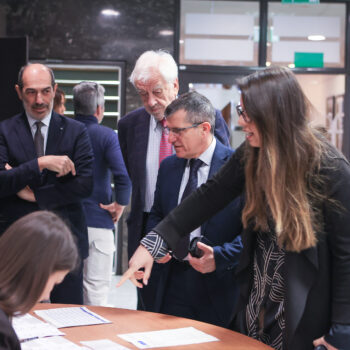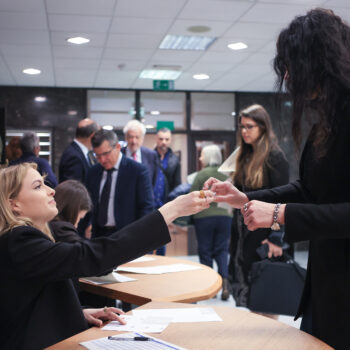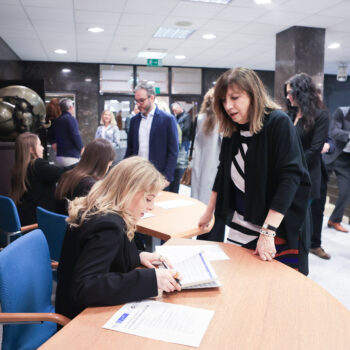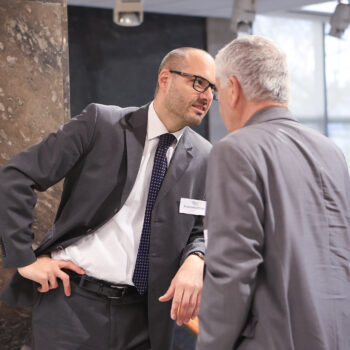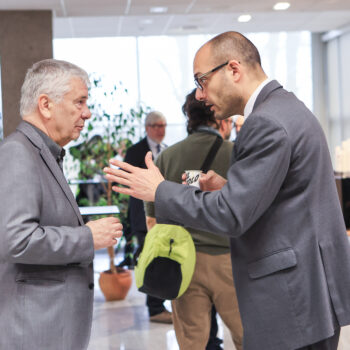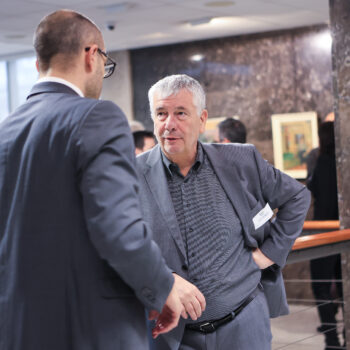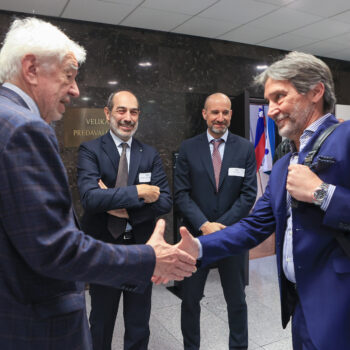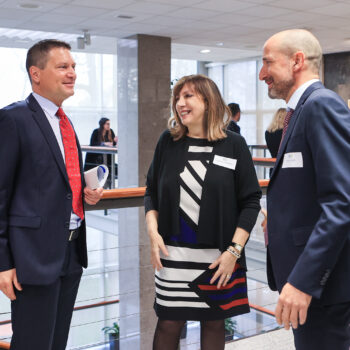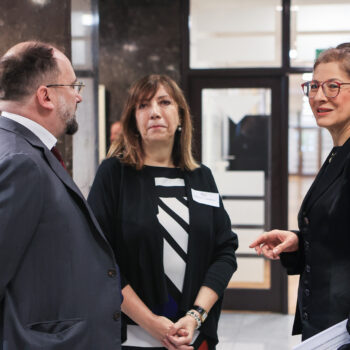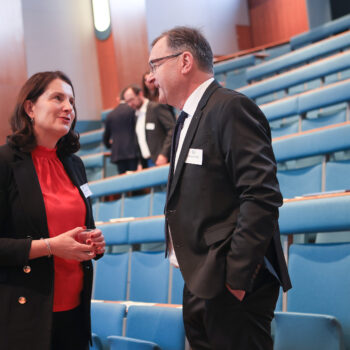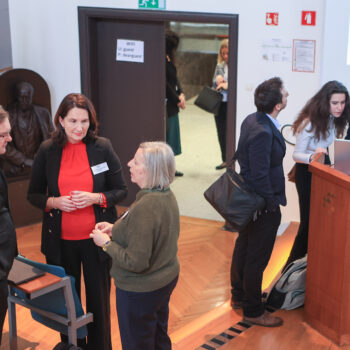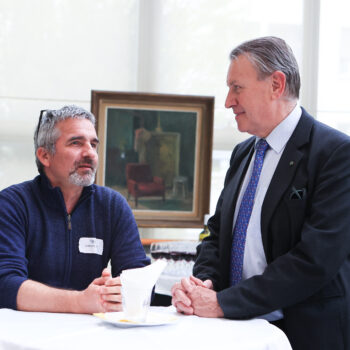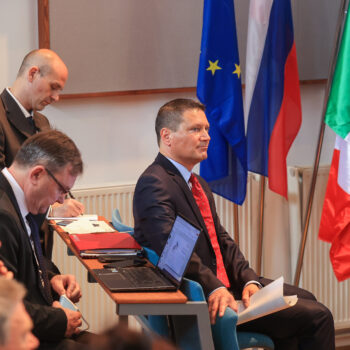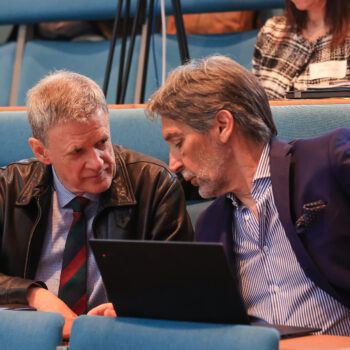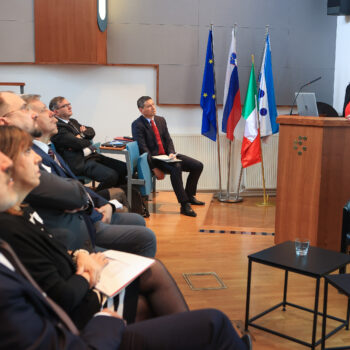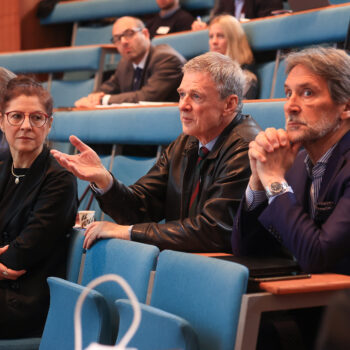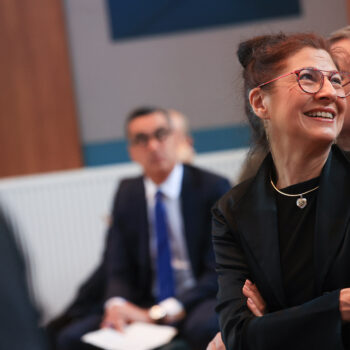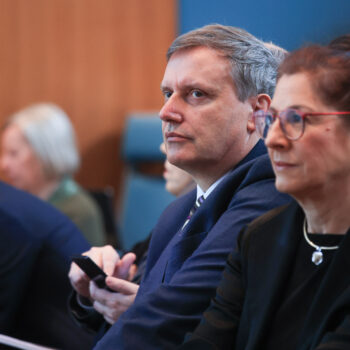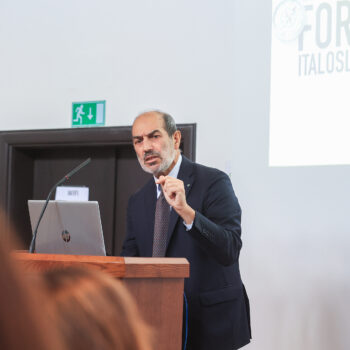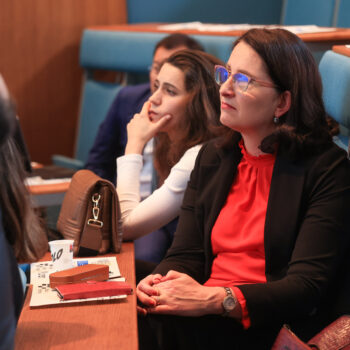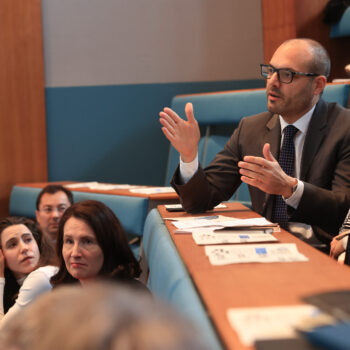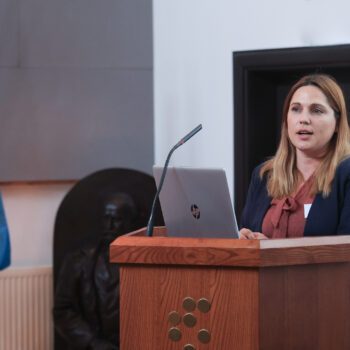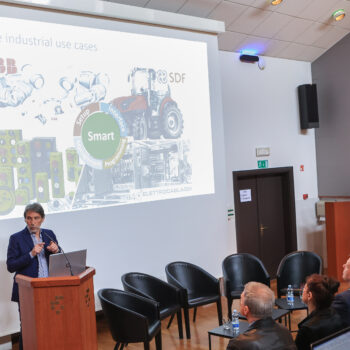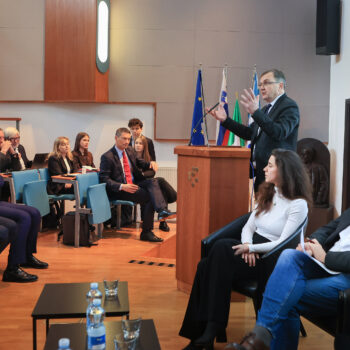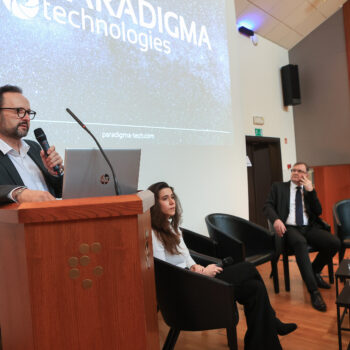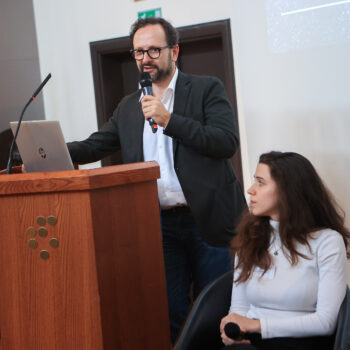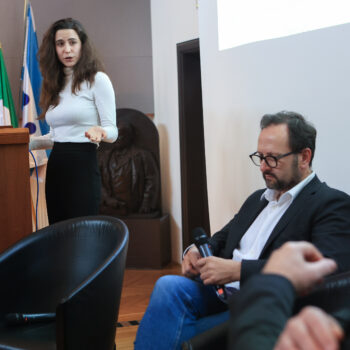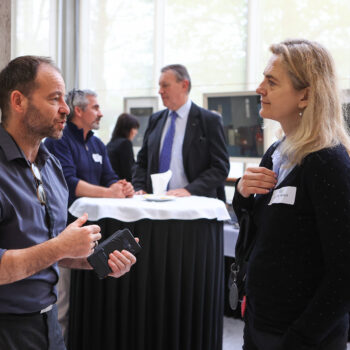Accelerating good innovation at the 10th IBF: It is a journey…!
From discovery to innovation through creativity to productivity improvements, this seems to be the promising journey to today’s challenges associated with the climate and resource crisis and declining population in the EU
Italy and Slovenia have been living extraordinary times of progress in their bilateral relations. Looking back at the past decade at the 10th anniversary of Italian-Slovenian Forum the two European partners can look even more ambitiously into the future, thanks to the closeness of cooperation between institutions and to many individuals who have contributed to the process of cooperation and shared innovation, the Forum’s president Jurij Giacomelli underlined in his opening address. Jozef Stefan Institute hosted the Italian Business Forum for the 6th time, said its director Bostjan Zalar and Ivo Michele Polacco, Charge’ d’Affairs at the Embassy of the Republic of Italy, a partner in the project together with Italian Trade Agency (ITA), the Institute, and Italian-Slovenian Forum, wished a happy birthday to forum’s members and friends. At the occasion of the 10th IBF a strategic agreement of cooperation between Consiglio Nazionale delle Ricerche and Jozef Stefan Institute, signed just before Christmas 2022, was presented by the Institute’s assistant director Romana Jordan.
Despite differences in size, both countries share some similarities, when challenging the increase of productivity of the respective economies, demonstrated Polona Domadenik Muren, Full professor at the School of Economics and Business of the University of Ljubljana. Particularly, soft elements and effectiveness of institutions may be crucial lacking factors in the case of Slovenia. Evidence suggests that the challenges and the opportunities arising from the green transition have not been sufficiently addressed by companies, particularly not by the SMEs. Giancarlo Miranda, President of the Supervisory Board of Intesa Sanpaolo Bank in Slovenia presented the new horizon in the governance of banking institutions in relation to the accomplishment of the EU Green Deal, which aims at the implementation of the sustainable finance agenda. This has been provided by the EU Taxonomy (from 2020) and the Sustainable Finance Disclosure Regulation (from 2019). Following the requirements of EBA (European Banking Association), the green asset ration will have to be reported at the bank level across the entire industry already for 2023. CEOs of Unicredit (Lorenzo Ramajola) and Intesa Sanpaolo Bank (Luigi Fuzio) expect ta one-digit to low two-digit green asset ratio in the first reporting year for the Slovenian banking industry. In the insurance sector, the social element of sustainability has been particularly dynamic due to the healthcare reforms, reported by Generali Slovenia’s Member of the Management Board Mitja Feri. Needless to say that on the investment side, insurance companies are aligned with banks to the same regulatory framework, undergoing a period of a significant overhaul in their internal practices.
